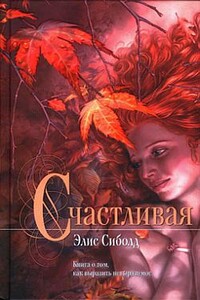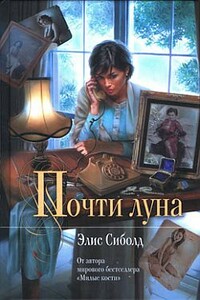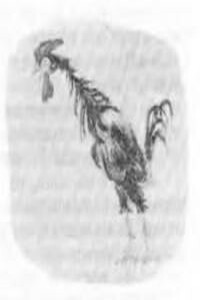And suddenly it was one of those awkward moments that they had learned to let pass and I lived to anticipate. It begged a central question. Where was I? Would I be mentioned? Brought up and discussed? Usually now the answer was a disappointing no. It was no longer a Susie-fest on Earth.
But something about the house and the night – markers like graduations and birthdays always meant that I was more alive, higher up in the register of thoughts – made Lindsey dwell on me more in that moment than she normally might. Still, she didn’t mention it. She remembered the heady feeling she had had in Mr. Harvey’s house and that she had often felt since – that I was with her somehow, in her thoughts and limbs – moving with her like a twin.
At the top of the stairs they found the entrance to the room they had stared up at.
“I want this house,” Samuel said.
“What?”
“This house needs me, I can feel it.”
“Maybe you should wait until the sun comes out to decide,” she said.
“It’s the most beautiful thing I’ve ever seen,” he said.
“Samuel Heckler,” my sister said, “fixer of broken things.”
“One to talk,” he said.
They stood for a moment in silence and smelled the damp air coming through the chimney and flooding the room. Even with the sound of rain, Lindsey still felt hidden away, tucked safely in an outside corner of the world with the one person she loved more than anyone else.
She took his hand, and I traveled with them up to the doorway of a small room at the very front. It jutted out over what would be the entrance hall of the floor below and was octagonal in shape.
“Oriels,” Samuel said. “The windows” – he turned to Lindsey – “when they’re built out like that, like a tiny room, that’s called an oriel.”
“Do they turn you on?” Lindsey asked, smiling.
I left them in the rain and darkness. I wondered if Lindsey noticed that when she and Samuel began to unzip their leathers the lightning stopped and the rumble in the throat of God – that scary thunder – ceased.
In his den, my father reached out to hold the snow globe in his hand. The cold glass against his fingers comforted him, and he shook it to watch the penguin disappear and then slowly be uncovered by the gently falling snow.
Hal had made it back from the graduation ceremonies on his motorcycle but instead of calming my father – providing some assurance that if one motorcycle could maneuver the storm and deliver its rider safe to his door, another one could too – it seemed to stack the probabilities in the reverse in his mind.
He had taken what could be called a painful delight in Lindsey’s graduation ceremony. Buckley had sat beside him, dutifully prompting him when to smile and react. He often knew when, but his synapses were never as quick now as normal people’s – or at least that was how he explained it to himself. It was like reaction time in the insurance claims he reviewed. There was an average number of seconds for most people between when they saw something coming – another car, a rock rolling down an embankment – and when they reacted. My father’s response times were slower than most, as if he moved in a world where a crushing inevitability had robbed him of any hope of accurate perception.
Buckley tapped on the half-open door of my father’s den.
“Come in,” he said.
“They’ll be okay, Dad.” At twelve, my brother had become serious and considerate. Even if he didn’t pay for the food or cook the meals, he managed the house.
“You looked good in your suit, son,” my father said.
“Thanks.” This mattered to my brother. He had wanted to make my father proud and had taken time with his appearance, even asking Grandma Lynn that morning to help trim the bangs that fell in his eyes. My brother was in the most awkward stage of adolescence – not boy, not man. Most days he hid his body in big T-shirts and sloppy jeans, but he had liked wearing the suit that day. “Hal and Grandma are waiting for us downstairs,” he said.
“I’ll be down in a minute.”
Buckley closed the door all the way this time, letting the latch snap into place.





